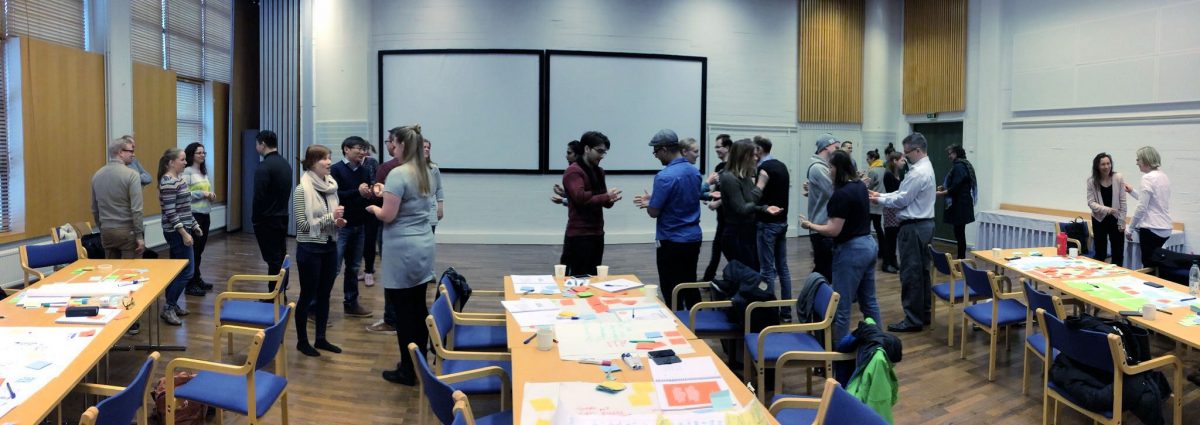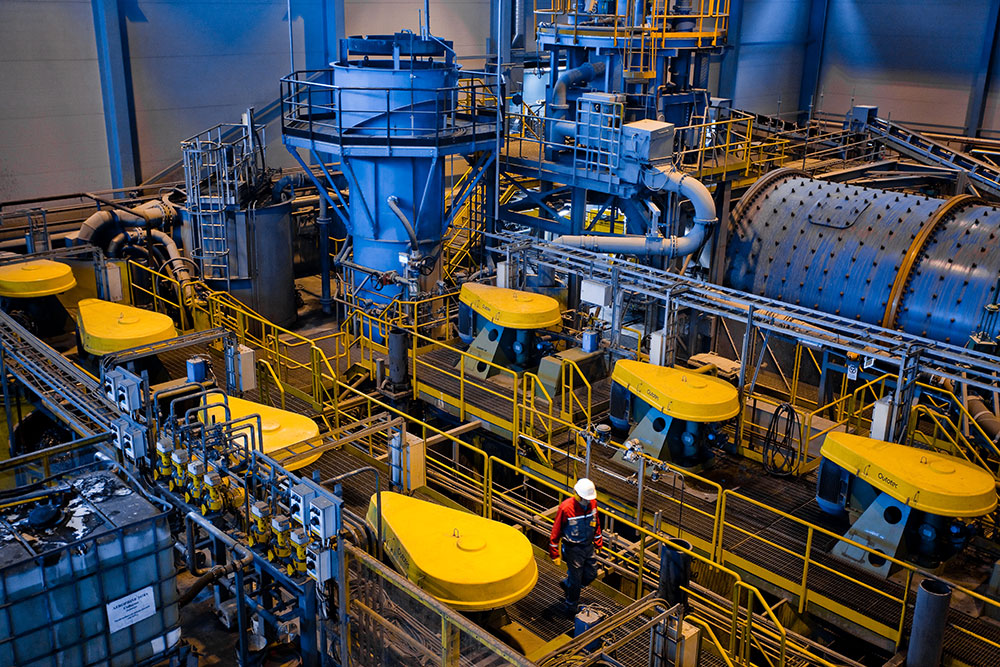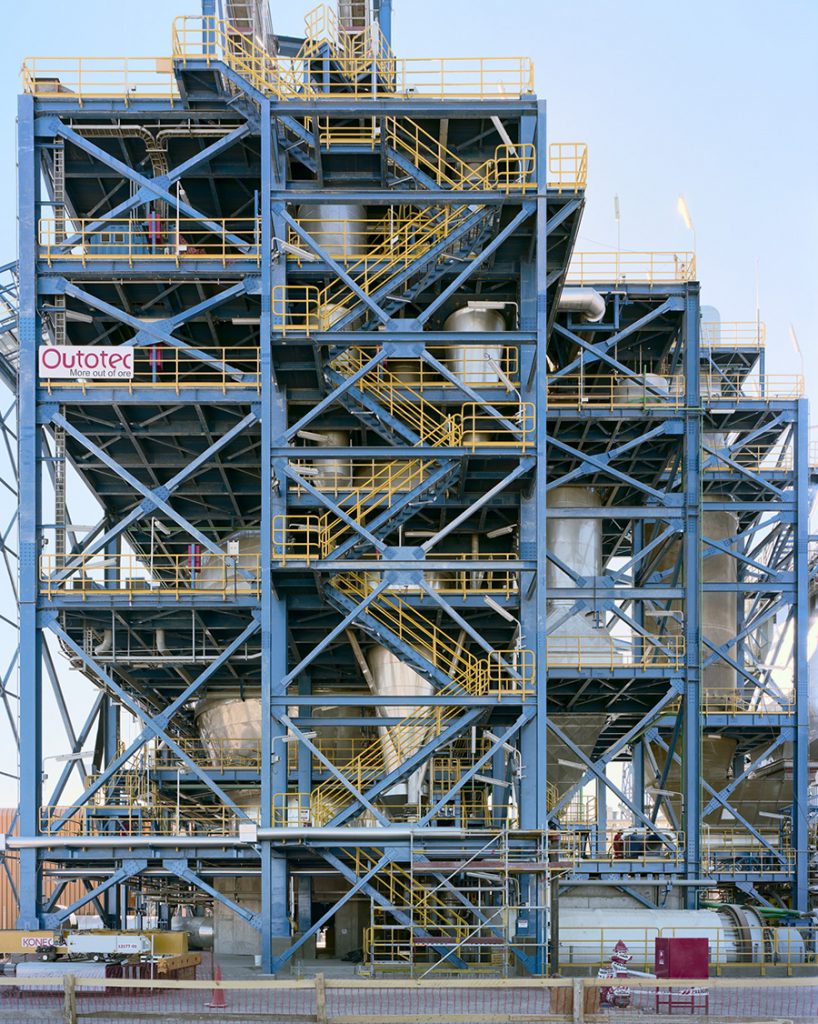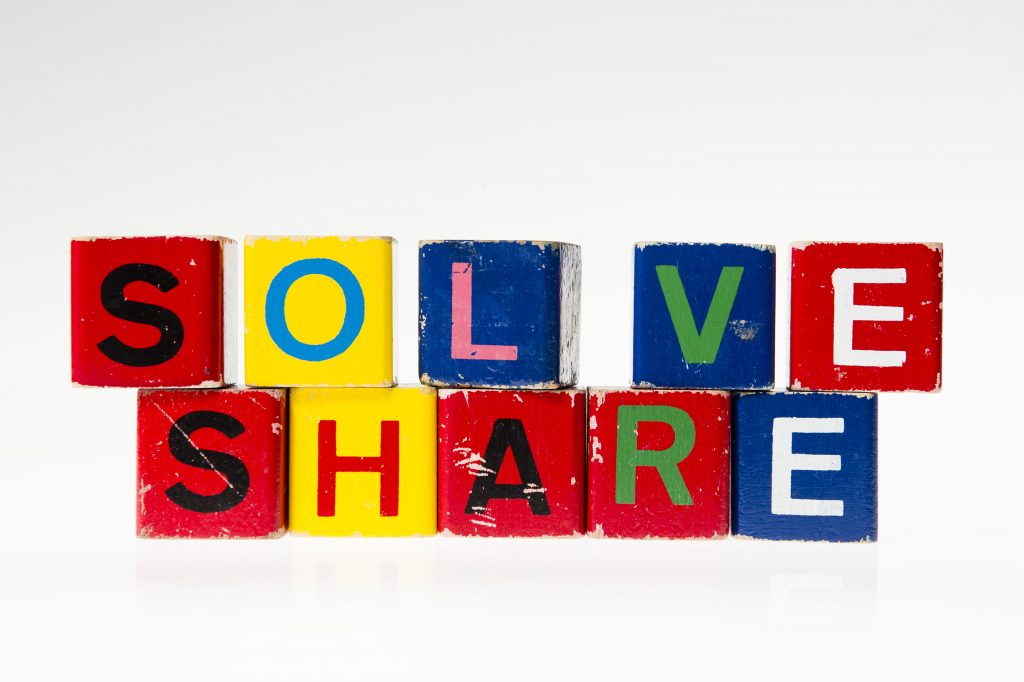Two intensive days packed with various activities pushed all teams over their limits, and brought everyone closer together.
The Sustainability Master Class (organised by University of Helsinki, in cooperation with Outotec) reached the first climax at its two-day Boot Camp. Here, the teams had opportunities to advance on their projects, and the mentors gave valuable assistance to all participants. When teams arrived to the event, the challenges had only been examined on theoretical approaches, after leaving the Boot Camp, teams have already come up with practical solutions (solution 1.0) for their problems.
The event started with individual self-evaluating and team building. Each participant got a chance to re-assess themselves and their motivation: what they are good at, what they are looking for from the class, what they are planning to achieve, what inspire them in life, etc.
After that, teams took part in the Marshmallow Challenge. In 12 minutes, every team had to build a freestanding structure that could hold a piece of marshmallow as high as possible. They received 10 spaghetti sticks and 1 metre of white tape for the “construction”.
There were a lot of discussions and analyses how to do the task. Every one really worked hard together in their own team to solve the puzzle. In the end, after much screaming and laughter, team Kai Tuo Zhe won the contest when their tower could raise the marshmallow to the height of 67cm. But truly, all teams won, for each became more attached as a team.
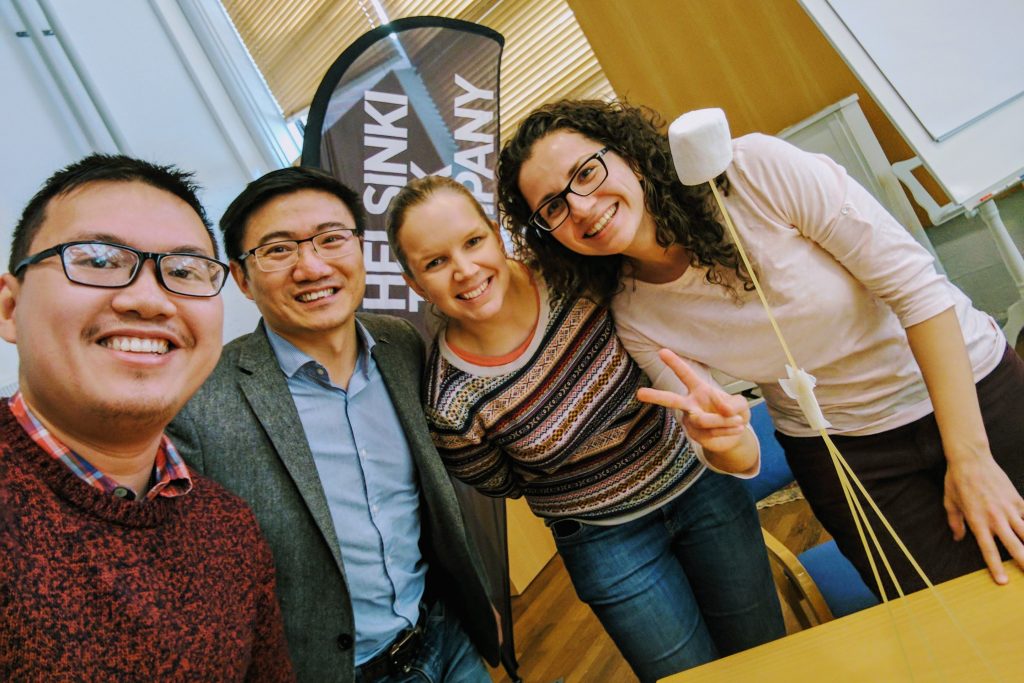
Assisted by Helsinki Think Company, all teams went through two days loaded with tasks, exercises, and activities. From defining problems to finding solutions, from getting and giving feedback to performing the pitches, every one could feel the streams of energy and ideas flowing through themselves as well as their teammates. Stressful, tired, and laborious, perhaps, but the outcomes are so rewarding. Big thanks to Jarkko and Meeri, who facilitated the working process so well and so cleverly and so aggressively that we must say, we love to hate you! (No, we don’t hate you. Probably.)
Other extensively helpful assistance came from the class’ mentors. They spared their precious time for joining the event. Using excellent knowledge and tremendous experiences, they helped every team excessively in solving the challenges. Without their guidance, the teams perhaps couldn’t go that far with the projects. Thank you, mentors! We promise that we will use you exhaustively until the end!
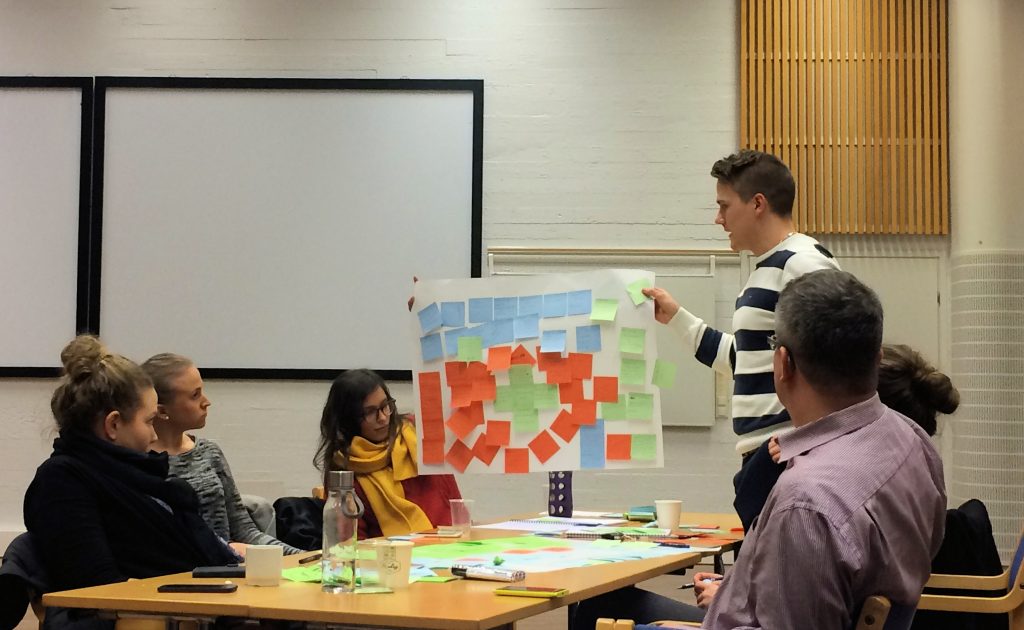
It is so amazing that when you work with each other, when you share the happiness and the difficulties, when you go through good and bad times together, when you split a croissant 50/50 because all have ran out, from acquaintances you become friends.
Of course real friends then forced you to swim in the cold lake after hot sauna. Sauna was definitely the best treatment to release tensions and tiredness. It’s also a chance to socialise and get to know other participants better. If two and a half hours of warm steam, cold water, and tasty drinks weren’t enough, social butterflies could mingle more in the hotel’s lounge. And many did just that. And it was delightful.
Thanks everyone for your lovely companies! Cheers!
Bui Nghiem Dac Vinh
